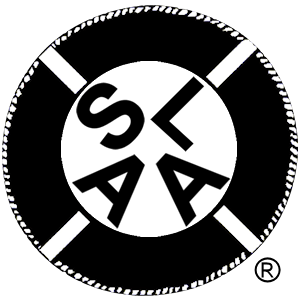The Question:
I have just started meetings in my area, and a member had a question regarding the 3rd tradition, specifically “provided that as a group they have no other affiliation.” His concern was that he knew other members that came to the S.L.A.A. meeting from AA meetings they also attend together. He also wondered if it would be appropriate to bring his current partner to a meeting (who is also a SLA). I interpret the tradition to mean that you don’t combine an AA/S.L.A.A. meeting, or bring other support group or non-support group agenda into an S.L.A.A. meeting. I just wanted to clarify please. Thank you.
This question could have two different connotations and I am not sure which one is intended by the inquirer.
If this is a meeting which is attempting to combine and also include an emphasis on alcohol recovery, Tradition 4 could apply that the group is autonomous and could conduct its meetings in the way decided by their Group Conscience.
The intent which I believe is being asked is whether or not two members are recovery partners in AA as well as in S.L.A.A. I have seen this in meetings and it works well. An
S.L.A.A. member twelfth steps one of his sponsees and bring him/her to an S.L.A.A. meeting and continue to be recovery partners in both programs. As long as both people in question are sex and love addicts as well as alcoholics, I see no violation of Tradition 3 because they are working together on their mutual addictions. This does not appear to be a combining of S.L.A.A. and AA, but 2 addicts coming together for their mutual recovery. This is also an application of our “primary purpose – to carry the message to the sex and love addict who still suffers” (Tradition 5).
Meetings and groups are autonomous except in matters effecting other groups or
S.L.A.A. as a whole (Tradition 4). This means that the group can decide by its own group conscience, which at the beginning is the person or people who start it, who can attend and who cannot attend. So it is fine if a meeting or group wants to let members of AA, spouses, partners, students, others, attend. It is helpful if there is a statement about who is welcome or not, in the intergroup meeting list if the meeting is listed, but again this is the choice of the group or meeting.
S.L.A.A. has a variety of cross addiction meetings. Some welcome sharing about all different addictions. Some welcome non 12 Step people to attend their meetings. Usually membership in another 12 Step fellowship would not prohibit a person’s attendance, but they might be asked to share only about their experience strength and hope on the topic of the meeting.
Frequently S.L.A.A. groups and meetings are very flexible about these matters. Some SLAA members may have experienced meetings of other 12 Step fellowships that were not as flexible. Flexibility is the choice of S.L.A.A. groups and meetings.
Some S.L.A.A. meetings with special focus are not flexible about who attends. This is the choice of the meeting or group.
Although some 12 Step fellowships say the newcomer is the most important person in any and all meetings of that fellowship, S.L.A.A. does not say this. Each S.L.A.A. group or meeting gets to decide about special attention to special topics or focus.
Although I personally would hope that some meetings in every area welcome newcomers, I personally feel that there are benefits of other focuses in areas where there are many meetings. This is my personal opinion. S.L.A.A. allows freedom and flexibility in many ways that some other 12 Step fellowships may not.
In S.L.A.A. it is OK to study outside literature as long as the outside literature is not implied to be S.L.A.A. Conference approved literature. S.L.A.A. draft literature is not outside literature. It is non-Conference approved S.L.A.A. copy righted literature. The Conference Literature Committee encourages the use of draft literature, both to gather feedback to improve it prior to Conference approval and for the recovery benefits it offers.
I agree this question can have two folds.
On the one relating to Tradition 6 where S.L.A.A. should have no other affiliation, I believe that having a S.L.A.A. /A.A. meeting orientation does not qualify in such an issue. When I read the 6th tradition of the A.A. 12 X 12, it really appears to me that S.L.A.A., for instance, should not be used to promote outside enterprises lest it generate controversy. Let’s say a group conscience, relying on tradition 4 about each group being autonomous, decides to associate recovery from sex and love addiction and from alcoholism, I believe it could decide to do so, as long as it is presented as such. I have attended multi-addictions meetings in the past, and as long as the recovery was focused on the twelve steps, there were no problems. However, since we are talking about a S.L.A.A. meeting, I would put sex and love addiction recovery first. However, I would not see that S.L.A.A. be presented as the solution, or one solution to alcoholism in an A.A. meeting. Then, I think it would break tradition 6. I hope I am not confused and confusing anyone.
As far as having fellow A.A. or other twelve steps programs’ members or a partner attending an S.L.A.A. meeting, I do not see any problem. If it is a closed meeting, you do have to identify as a sex and love addict though, and I would say, in connection with the first paragraph, that in such a “closed” setting the attending members should at least identify as a sex and love addict.
But otherwise, there are plenty of open meetings where anyone can attend. In my area we greet many students from a local nursing program. Our group rep or a senior group member though makes sure to have a conversation with these people about anonymity. I believe it is also the group’s responsibility to maintain a safe environment for the regular members hence setting clear boundaries with visitors. The visitors have always been very respectful.
Also, I find that having new or visiting members from other fellowships can be somewhat of an asset. Generally speaking, they come to S.L.A.A. after attaining sobriety in another area, they know about withdrawal, about the steps, about service and fellowship. Even if they do have to adapt to the specifics of S.L.A.A. in terms of vocabulary, approach and some behaviors, I believe they can contribute valuable recovery experience. I find this particularly true in business meetings
My reading of the traditions would tell me that having members of other organizations and/or other visitors is fine unless it is listed as a “closed” meeting. Those visitors need to be notified of the “anonymity” involved with our meetings, however. We often have visitors from various college training programs–nurses, therapist trainees, etc. We try to have a “special” reading for those new people during the meeting–letting them know about our Step One, and other basic information. We also have many SLAA attendees who also attend AA or SAA and we have had no problems with any of the visitors that we’ve had (so far anyway).
In addition to the points already well expressed by others, I think we should remember that at an SLAA meeting, while many may have experience with alcoholism, gambling, overeating, debting, drugging, etc., what all present have in common is seeking identification with others who have sex and love addiction. The purpose of the meeting is to carry the message of recovery to those who suffer this addiction. Its purpose is not to educate others, although meetings have certainly welcomed those who may refer addicts to SLAA.
In my area, there are usually no open meetings that have continued for more than a few months, so it suggests the statement “If you are here for yourself, you are welcome”. At any one of the 5 Fellowships in which I was a member, I always mention at least sometimes those “other problems”, but I focus on the one for which the meeting exists, so that the greatest number of those present will have a chance to identify. I also have benefitted from multi-addiction “recovery” meetings. The focus on use of the 12 steps with multiple addictions has been a very helpful focus for me at times, and may be for others. The reminder to honor anonymity is always appropriate when a meeting is open to non-addicts and new-comers.



